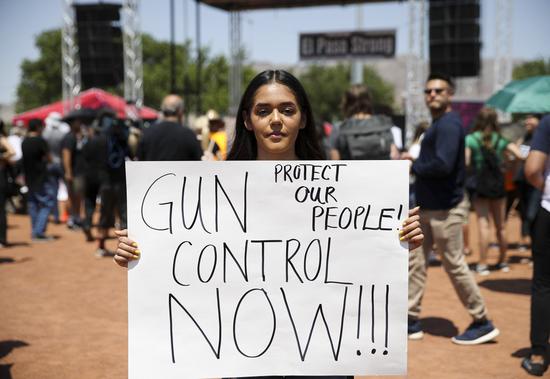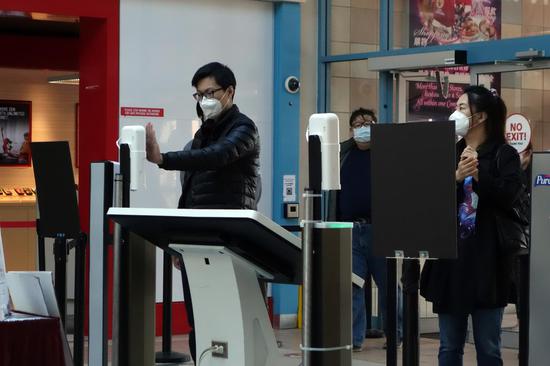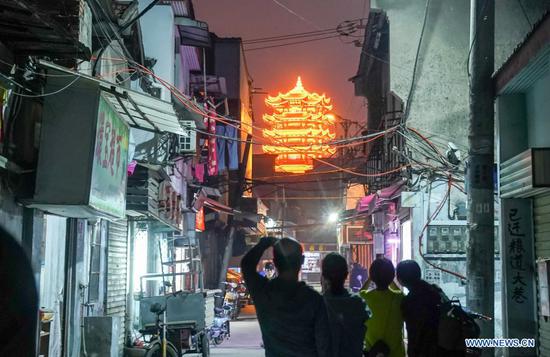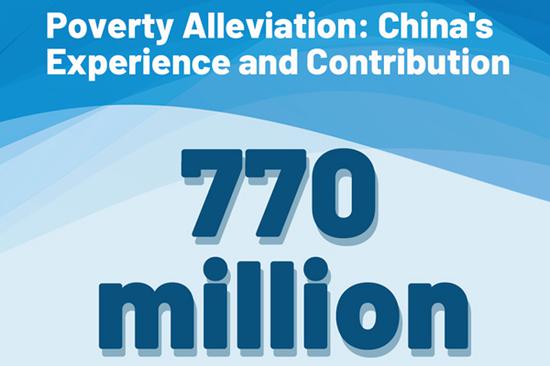
College student Jennifer Estrada takes part in a rally for gun control and anti-racism, in El Paso of Texas, the United States, on Aug. 7, 2019. (Xinhua/Wang Ying)
A recent string of mass shootings in the United States have once again proved that the country, always proclaiming itself a defender of human rights, is indeed a hypocrite, as deadly gun violence rate keeps ballooning while gun proliferation remains rampant.
U.S. President Joe Biden on Thursday depicted gun violence in the country as "an epidemic" and "an international embarrassment," highlighting a chronic human rights crisis that has reached epidemic proportions and long blighted the United States.
Over the last few weeks, the country witnessed mass shootings occur nearly back-to-back in Orange, California, Boulder, Colorado, the Atlanta area in Georgia and Central Texas.
As of April 7, 11,535 Americans were killed by gun violence this year, according to data from the Gun Violence Archive. Last year, the number of gun violence death topped 435,000, including nearly 300 children, more than any other year in at least two decades.
Although Washington has largely rejected being held accountable for the ravaging crisis, its failure to protect its citizens from gun violence has been constantly reviewed and bombarded by international human rights bodies including the United Nations Human Rights Committee.
The "right to life, liberty and security of person" is codified in the 1948 Universal Declaration of Human Rights. "Life" also comes before "liberty and the pursuit of happiness" among the three unalienable rights enshrined in the Declaration of Independence.
However, for decades, Washington has failed to live up to the legal promises made to its people. The right to bear arms too often trumps the right to life as a result of powerful lobbying by interest groups such as the National Rifle Association, erecting a major barricade to gun control legislation.
Multiple complex legal, political and cultural factors lead to the high rate of gun violence in the United States.
The most conspicuous one is that guns are unreasonably easy to get in the country. Gun control advocates even lamented that it's "easier to buy a gun than to register to vote" in the United States, which bills itself as a champion of freedom and human rights.
As a consequence, gun proliferation has been appalling. With less than 5 percent of the world's population, the United States owns 46 percent of the global civilian-owned guns, according to a report by the Switzerland-based Small Arms Survey.
In 2020, industry data and firearms background checks show that nearly 23 million guns were purchased in the country, up by 65 percent from the previous year, according to U.S. consulting firm Small Arms Analytics.
A more underlying reason for the deteriorating gun violence in the United States is that the government makes little effort to address the root causes -- racism, poverty and lack of access to education.
Specifically, eight people were shot dead at three massage parlors in the Atlanta area in March, of whom six were Asians, stoking fears over rising hate crimes against Asian-Americans.
Meanwhile, the country's public divide on gun control has revealed the cavernous gap between rural and urban Americans. Many of the supporters for gun ownership take hunting and fishing as a way of life in states with large rural populations, while for many in coastal cities, owning guns is unacceptable.
Unfortunately, gun control legislations are extremely hard to get through the U.S. Congress due to partisan politics and the influence of interests groups.
The hot-button issue has for decades been a major point of contention between Democrats and Republicans. The GOP favors gun-owners' rights, arguing that gun laws will not keep people safe, but rather take away the rights of law-abiding citizens.
In contrast, Democrats contend that gun laws will make a difference, saving people's lives and preventing firearms from getting into the hands of the wrong people.
Last month, the House of Representatives approved a pair of bills aimed at expanding and strengthening background checks for gun buyers. Though widely popular with voters, the measures were expected to face strong GOP opposition in the Senate.
Biden, who campaigned on the issue of curtailing gun violence, is expected to proceed with piecemeal regulations through executive orders or tucking them into the massive infrastructure bill that is now taking shape in Washington.
Yet gun control advocates maintained that Washington's measures on gun control are far from enough. Without the right to life, it is impossible to enjoy other rights. The U.S. government has clear and urgent obligations to tackle gun violence.
Effective gun control is more about whether Washington has adequate political will and moral courage to take all measures necessary to protect people from gun violence. As Biden has said, "Enough prayers. Time for some action." And for real action.


















































